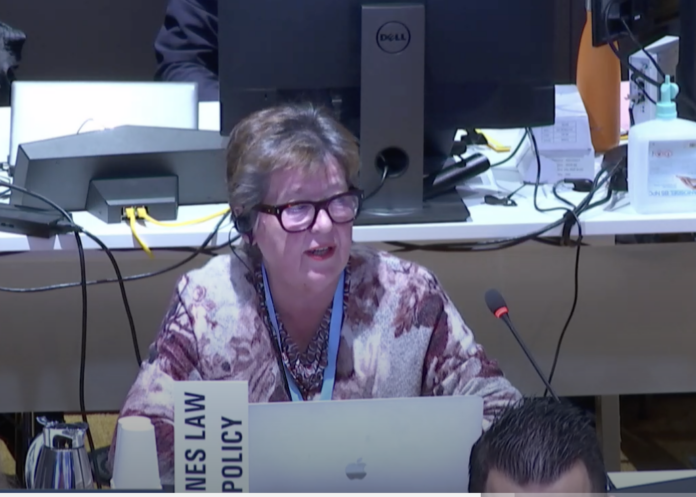Thank you for the opportunity to make a brief statement.
The negotiations for the Pandemic Agreement enter the final phase. We hope and wish for a good (green) agreement to be taken to the WHA in May.
A pandemic agreement that:
- recognises the need for international solidarity and collaboration in preventing and responding to pandemics,
- recognises the importance of equitable access to pandemic countermeasures,
- ensures sharing of medical technologies, including accompanying IP and knowhow and (Art.11),
- commits member states to contribute resources and support for the implementation of the agreement and in particular, to the work of WHO,
is the key basis for a better future in pandemic response.
Now more than ever, the world needs a signal that multilateralism works, that solidarity is at the core of the Pandemic Agreement and that no country will be left alone to deal with pandemics, either current or future ones.
That is not the predominant spirit in Geneva – or the world for that matter – at the moment, but you can bring it back.
As requested, I would like to make a brief comment in relation to Article 11, in particular, footnote 1(j).
The new footnote 1(j), which contains a rephrased definition of technology transfer, is an improvement.
The new definition seems to be based on existing legal sources, including the Convention on Biological Diversity (CBD), the Agreement under the United Nations Convention on the Law of the Sea on the Conservation and Sustainable Use of Marine Biological Diversity of Areas beyond National Jurisdiction (BBNJ) and the Montreal Protocol, which include similar terms in relation to tech transfer (e.g. “…fair and most favourable terms, including on concessional and preferential terms…”).
The definition also includes “In accordance with mutually agreed terms and conditions” implies that technology transfer is a voluntary measure in the context of this agreement. And should satisfy those delegations that have insisted on adding the term voluntary in various paragraphs of Article 11.
We maintain that it would be essential to be able to compel the transfer of technology and knowhow when needed for a global response. The European Commission, supported in this by the European Parliament, recognises the importance of technology transfer in crisis situations and has proposed measures to compel technology transfer within the EU in crisis situations when needed. See here for more information. It would be important to establish a similar mechanism for use in crises at the global level to facilitate cross border sharing of pandemic technologies.
The origin of the language “In the case of technology subject to patents, such transfer shall be provided on terms which recognize and respect protection of intellectual property rights” is unclear. We also do not see the logic for it since technology transfer is defined as being on “mutually agreed terms and conditions” which presumably means “voluntary”. The text seems redundant and risks throwing up a barrier to compulsory licensing even though such licensing is part of a balanced system for the protection of intellectual property rights.
We offer more specific suggestions for text-based solutions, which are available here: https://medicineslawandpolicy.org/pandemic-accord/
Thank you for your attention.
Ellen ‘t Hoen, LLM PhD, is a lawyer and public health advocate with over 30 years of experience working on pharmaceutical and intellectual property policies.
